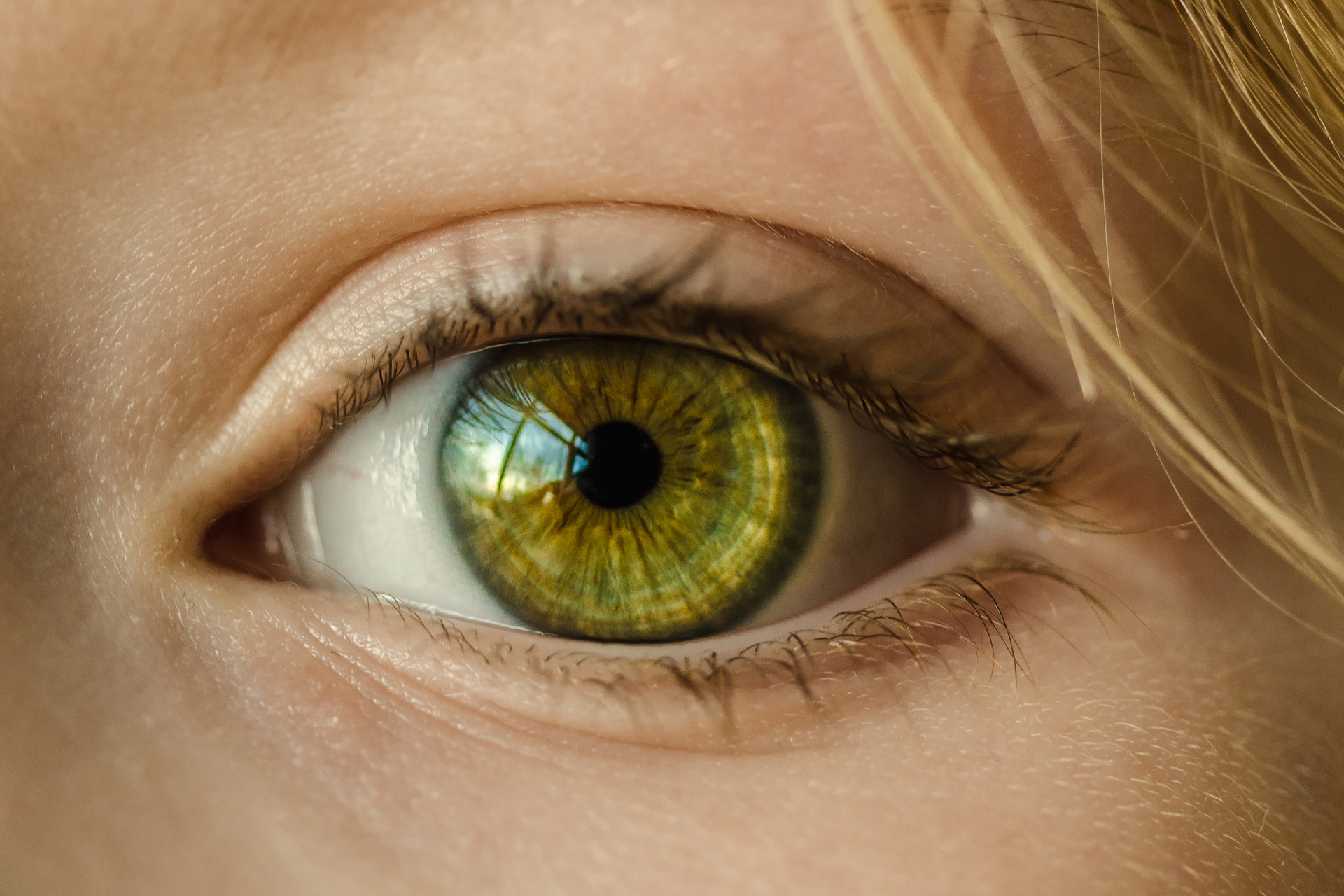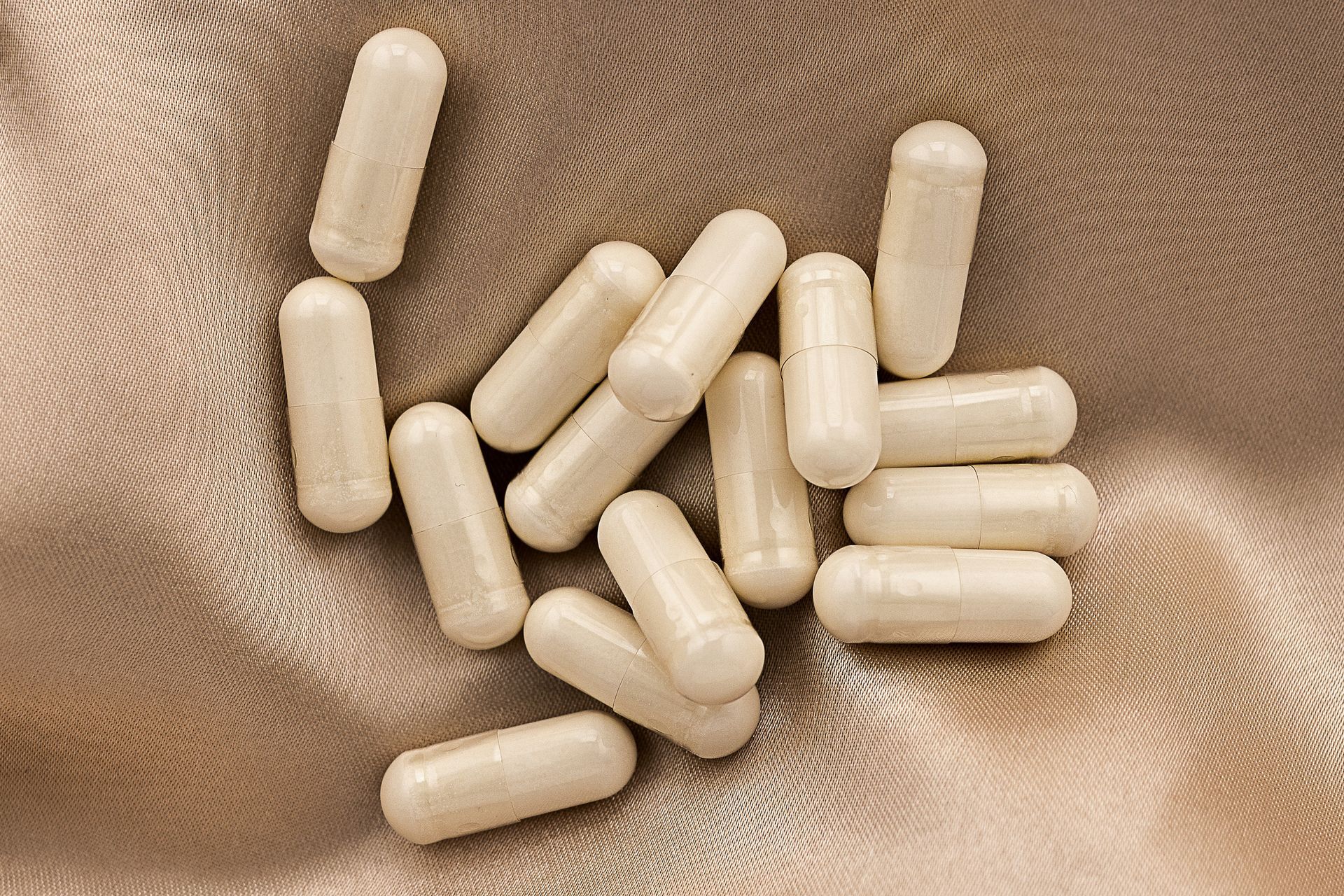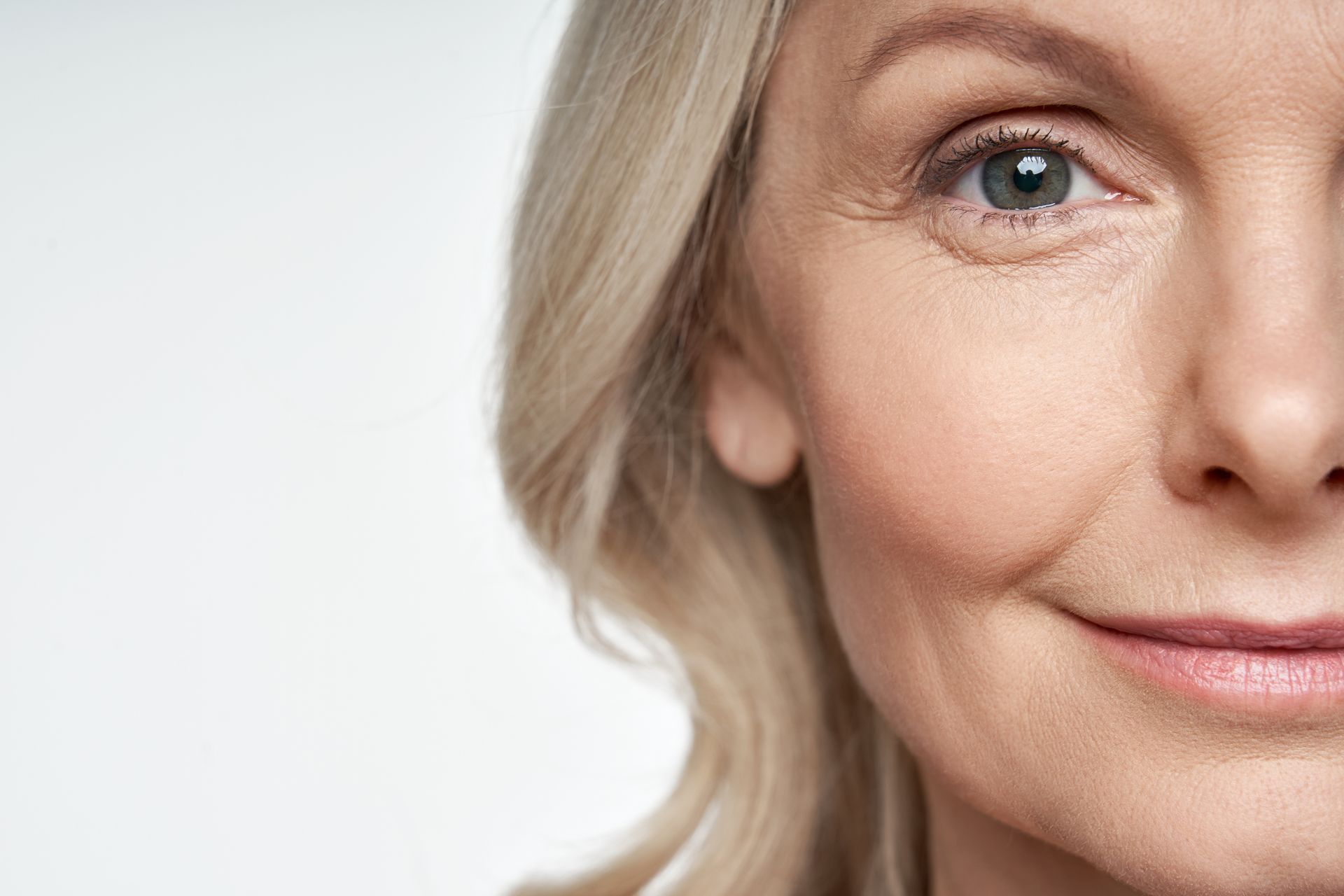Nutrients Beneficial for Vision Disorders
Bilberry (100 mg) is a rich source of anthocyanidins and anthocyanosides that help prevent and alleviate eye inflammation, eye fatigue, AMD (age-related macular degeneration), cataracts, glaucoma, myopia, and nyctalopia (night blindness). Damage to the collagen structure of the eye is one of the underlying causes of glaucoma. The anthocyanosides in Bilberry strengthen the integrity of collagen structures, including those in the eye, and can be used as a glaucoma alternative treatment. Bilberry helps to alleviate many eye diseases by strengthening the capillaries and improving blood supply to the eyes. Bilberry helps to alleviate eye fatigue of all kinds, including that caused by reading, driving and using computer terminals, as well as helping prevent and improve day blindness (hemeralopia). Anthocyanosides, the principal active constituent of Bilberry, facilitate the regeneration of rhodopsin, the visual pigment required for night vision. Studies conducted on air traffic controllers, pilots and automobile drivers have concluded that Bilberry improves nighttime visual acuity and provides more rapid adjustment to darkness, as well as allowing faster recovery of proper vision after exposure to glare, by improving blood circulation to the retina of the eye. Human clinical trials have shown that the anthocyanosides in Bilberry increase the efficiency of the photomotor response of the pupils.
How It Works
Siberian Ginseng (100 mg) is an adaptogenic, chemoprotective plant containing anti-inflammatory, antioxidant eleutherosides that help protect against eye inflammation and eye fatigue due to stress.
Seanol-P (50 mg) is the most powerful and long-acting, natural antioxidant now known. Unlike virtually all of the land-based, “hydrophilic” (water-soluble) polyphenols, including catechins and EGCG from green tea extract, anthocyanosides from bilberry and blueberry extracts, proanthocyanidins from grape seed and pine bark extracts, etc., the effectiveness of Seanol-P is, in part, due to the fact that these sea-based, polyphenol-phlorotannin extracts contain large amounts of “lipophilic” (fat-soluble), “hydrophobic” (water-insoluble) compounds. This gives Seanol-P the unique ability to be easily absorbed into and concentrated in all the cells of the body. Including the eyes, and also pass through the blood-brain barrier, thereby helping to protect and improve ocular function, memory and mental clarity. In addition, the “lipophilic” (fat-soluble) properties of the special polyphenols in Seanol-P allow it to remain in the body of humans and other mammals up to 12 hours, in contrast to the very short, thirty-minute half-life of the “hydrophilic” (water-soluble), land-based polyphenol sources. The ORAC score for antioxidation potential (8,300) of Seanol-P is significantly higher than most known land-based polyphenols. Phlorotannins are known to be potent antioxidants and anti-inflammatory agents that help to prevent and alleviate inflammatory and degenerative disorders of the eyes, including AMD (age-related macular degeneration), cataracts, glaucoma, myopia, and nyctalopia (night blindness).
Grape Seed (25 mg) is a rich source of oligomeric proanthocyanidin (OPC) complexes that have been shown to prevent and reduce inflammation, strengthen the structural intergrity of the capillaries that supply the retina, alleviate myopia (short-sightedness), improve visual acuity, help prevent blood-shot eyes and protect against macular and retinal degeneration and cataracts. A human clinical study involving 147 retinopathic patients demonstrated that treatment with OPCs improved the condition of exudative retinopathy due to ischemia (impaired blood flow) from arteriosclerotic, diabetic, inflammatory or degenerative causes.
Ginkgo biloba (25 mg) may improve blood circulation to the eyes by several mechanisms including enhancement of central and peripheral blood flow, reduction of vasospasm, reduction of blood viscosity, antioxidant activity, platelet activating factor inhibitory activity, inhibition of apoptosis and inhibition of excitotoxicity. Ginkgo neutralizes the effects of free radicals produced in the eyes. Ginkgo has been demonstrated to lower intraocular pressure and improve visual field in glaucoma patients, as well as to protect against and alleviate AMD (age-related macular degeneration) and improve color vision in early diabetic retinopathy.
N-Acetyl-Carnosine (100 mg) is a potent, antioxidant and anti-AGE (advanced glycation end product) amino acid purported to help prevent and improve vision disorders that have a component of free radical oxidative stress in their genesis, e.g., cataracts, glaucoma, AMD (age-related macular degeneration), corneal disorders, ocular inflammation and vision problems associated with diabetes mellitus and systemic diseases. Studies demonstrate the N-Acetyl-Carnosine appears to alleviate eye tiredness and comparatively improve eyesight, as well as to brighten and relax the eyes.
Taurine (250 mg) is a potent, antiexcitatory, antioxidant amino acid that concentrates in the retinal macula, where it exerts effects that counteract AMD (age-related macular degeneration). Research has demonstrated the ability of taurine to inhibit the glycation of proteins in the lens of the eye caused by exposure to sugars, esp. the hyperglycemia associated with diabetes mellitus. The cross-linking (glycation) of simple sugars in the lens of the eye is one of the known mechanisms for the development of cataracts. Taurine has also been shown to prevent electromagnetic radiation-induced cataracts. Taurine enhances the function of the rods and cones of the retina, which makes it essential for optimal vision. Taurine deficiency can cause degeneration of the retina.
Methionine (50 mg) is an essential, sulfur-containing amino acid whose deficiency can cause cataracts and methionine supplementation helps prevent the development of cataracts.
Quercetin (50 mg) is a flavanol bioflavonoid that helps prevent cataracts by inhibiting the enzyme aldose reductase, which catalyzes the conversion of glucose to sorbitol in the lens of the eyes; it is the accumulation of sorbitol in the ocular lens that results in cataracts.
Vinpocetine (10 mg), derived from the seeds of the Common Periwinkle plant, improves blood circulation to the eyes, especially to the retina and macula regions. Research showed that administration of vinpocetine for two years resulted in stabilization of the condition of 80% of glaucoma patients. In one study, vinpocetine improved visual acuity in 70% of human subjects. There is also strong evidence the vinpocetine can help prevent or alleviate AMD (age-related macular degeneration).
Ascorbyl palmitate (100 mg), the highly bioavailable, lipid soluble form of vitamin C, along with the carotenoids Lutein, Astaxanthin and Zeaxanthin and other natural mixed carotenoids, have been extensively researched worldwide and demonstrated to help prevent and alleviate free radical oxidative stress-induced damage to the eyes, AMD (age-related macular degeneration), diabetic retinopathy, cataracts, glaucoma, myopia and nyctalopia (night blindness).
(R)-Lipoic Acid (25 mg) is a potent, water- and lipid-soluble antioxidant, which helps protect against AMD (age-related macular degeneration), cataracts and glaucoma, in part, by helping to regenerate vitamin C, glutathione and vitamin E within the infrastructure of the eyes. (R)-Lipoic Acid also enhances the ability of glutathione peroxidase to prevent cataracts and inhibits the activation of aldose reductase, an enzyme that is implicated in cataract formation due to its ability to catalyze the production of galacticol and sorbitol from galactose and glucose. A study of patients afflicted with open-angle glaucoma treated with (R)-Lipoic Acid demonstrated that 47% experienced improvement in visual acuity, visual field, color discrimination and increased lacrimal tear fluid secretion. Another study showed that (R)-Lipoic Acid therapy caused a relevant increase in levels of energy available in the brain and skeletal muscle during exercise, resulting in improvement of chronic progressive external ophthalmoplegia and muscle mitochondrial DNA deletion. Research has also demonstrated its efficacy in helping prevent and reverse diabetic retinopathy and neuropathy, as well as in preserving brain cell structure and function.
DHA (Docosahexaenoic Acid) (100 mg) is an omega-3 fatty acid that is highly concentrated in the retina of the eyes and enhances the function of the light-receptive retinal cones and rods. The retina contains higher concentrations of DHA than any other tissue of the human body. DHA is essential to the optimal functioning of the retina and macula. DHA has been shown to help prevent AMD (age-related macular degeneration), improve visual acuity and alleviate night blindness. DHA has been documented to suppress the various cytokines involved in inflammation, specifically tumor necrosis factor-alpha (TNF-alpha), interleukin 1 beta, interleukin 6 and leukotriene B4, thereby helping to inhibit and improve conjunctivitis, retinitis, retinopathy and other inflammatory eye disorders. DHA is also a major component of the brain and require for optimal CNS functioning.
Recommended Indications:
· Promotes protection and maintenance of ocular infrastructure, optimum visual functioning and total eye health
· Helps provide support for healthy, normalized intraocular pressure, as well as the enhancement of visual acuity
· Promotes prevention and control of toxic, free radical and AGE (advanced glycation end product) formation in the structures of the eye, brain and entire body
· Helps prevent and alleviate eye inflammation and fatigue, AMD (age-related macular degeneration), cataracts, glaucoma, myopia and nyctalopia (night blindness)
· Helps protect and maintain optimum cognitive functioning via synergistic supportive action on CNS neurons (brain cells), of which the retinal cells are an extension






